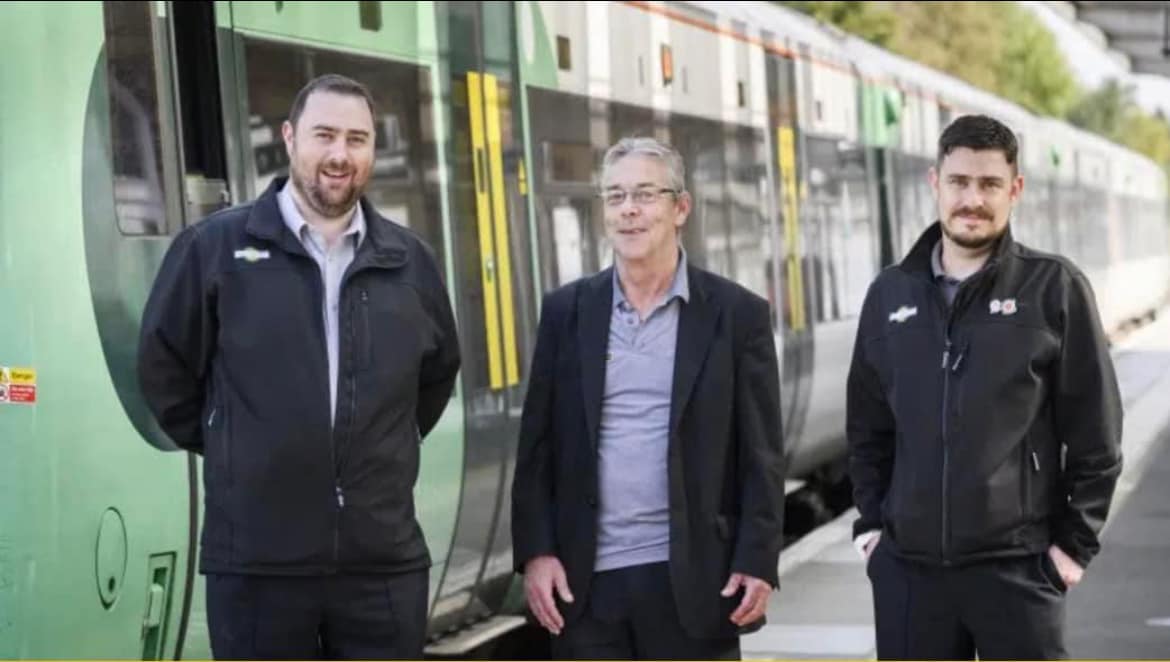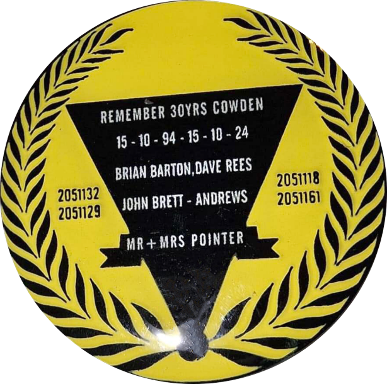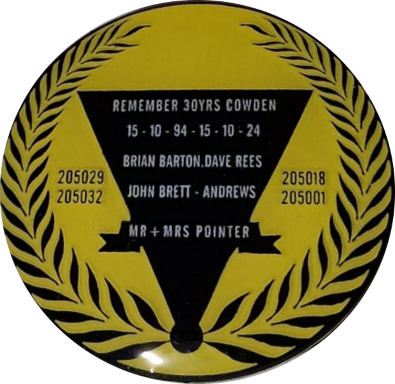
2024

ADAM LAIRD COLLECTION
Barnham drivers
Lee Laird, Terry Laird & Adam Laird
Terry sadly passed away on the 5th January 2024
COWDEN 30TH ANNIVERSARY BADGES
Designed by Sam Green Norwood

orignal version

amended version
The original badge have the unit numbers are incorrect unit numbers
and the amended version shows the correct units numbers